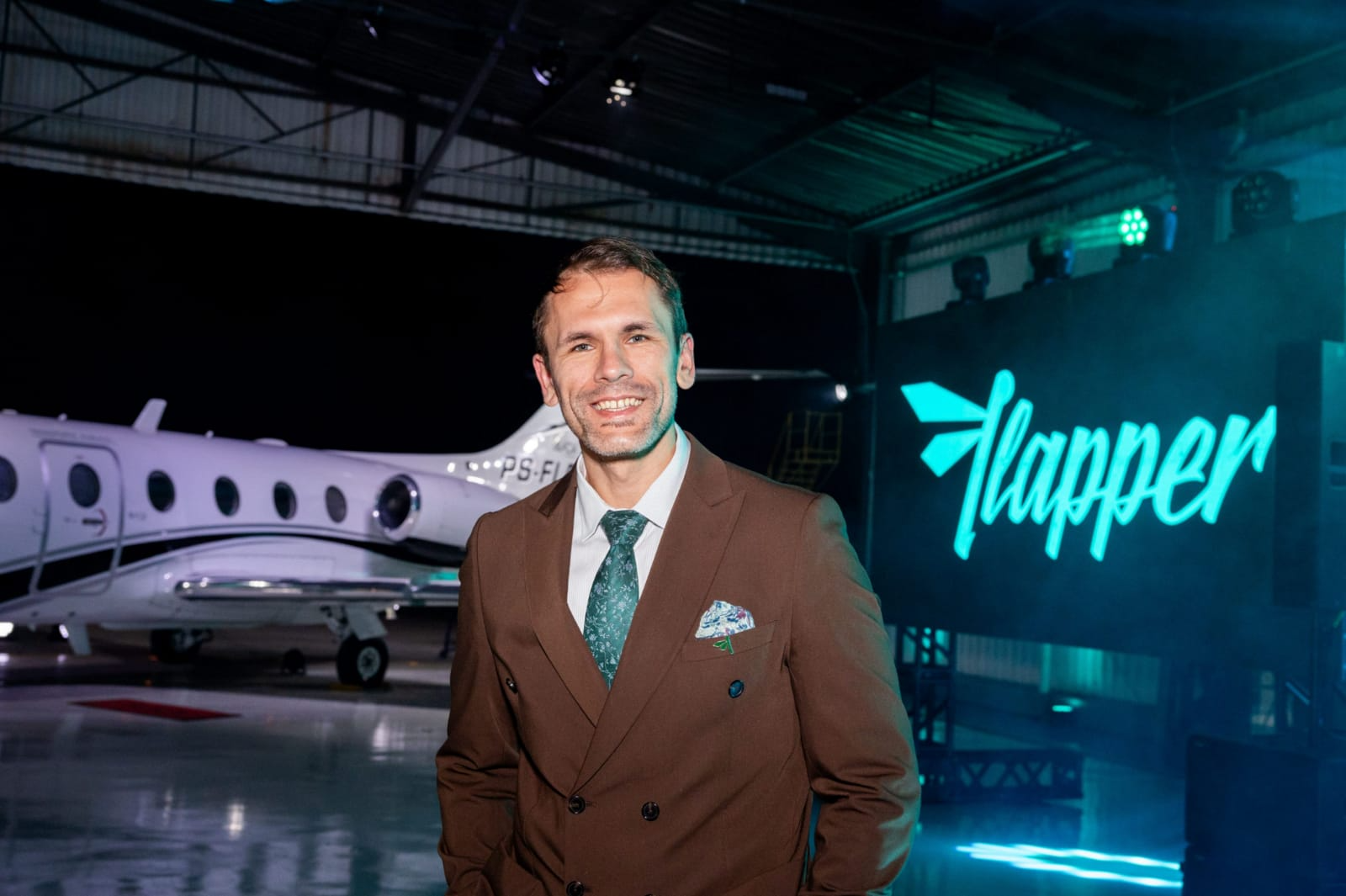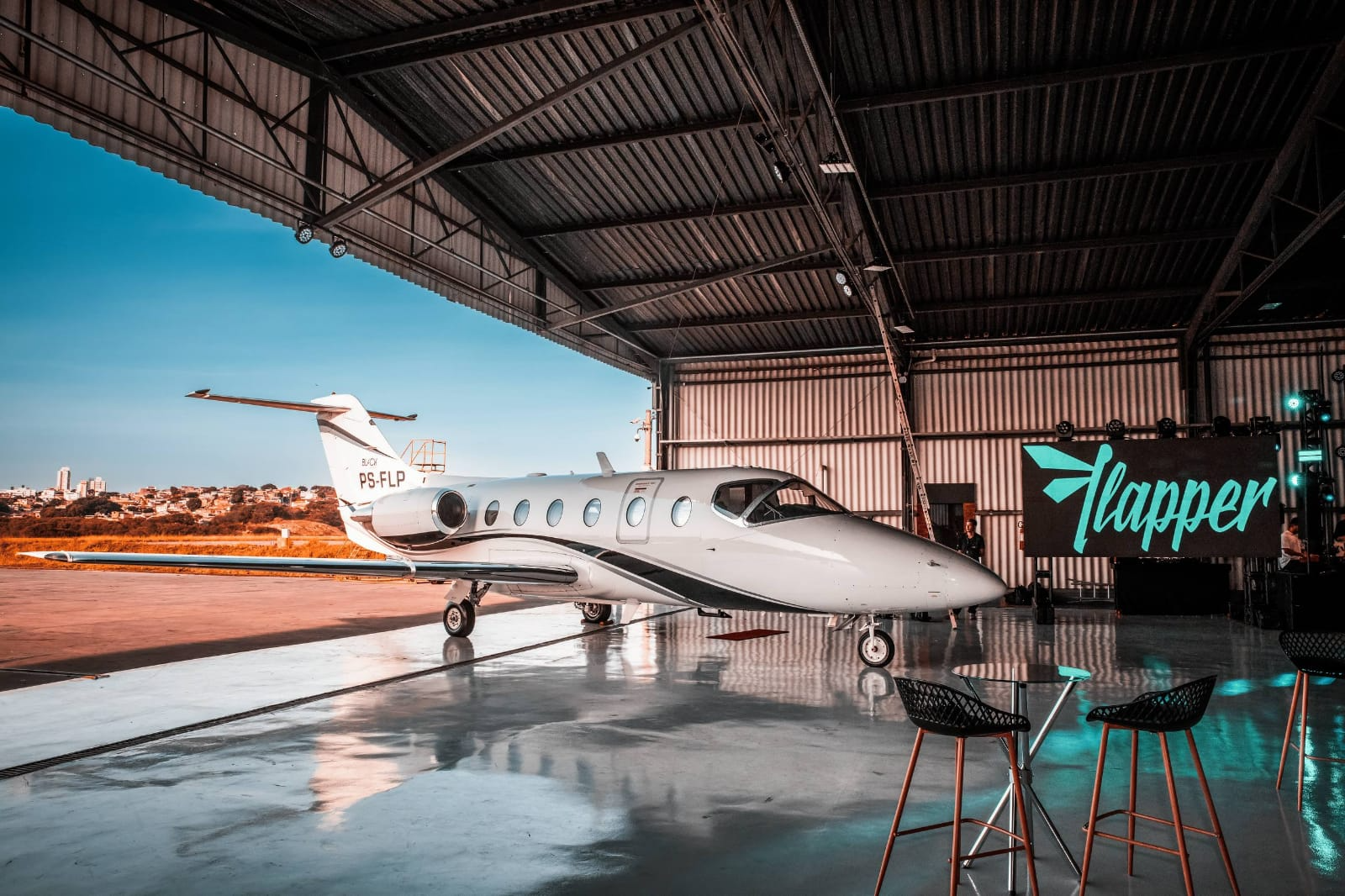Flapper, a leading global on-demand private aviation company, announced today the completion of its USD 6 million Series A capital raise with the addition of a USD 1.6 million bridge round. The funding follows the rollout of its aircraft management division earlier this year, while reaffirming its asset-light business model as a core focus.
Flapper, a leading global on-demand private aviation company, announced today that it has raised US$1.6M as part of its ongoing Series A funding. The round was led by venture capital fund EQSeed and aviation-focused investment firm Asset Jet. Under the agreement, which included both primary and secondary transactions, Asset Jet acquired a 40% stake in Flapper, buying out its initial co-founders and early investors. CEO Paul Malicki remains the company’s largest individual shareholder. As part of the transaction, Asset Jet will act as the financing vehicle for Flapper’s fractional ownership division, while also contributing a hangar in Belo Horizonte and two aircraft to the fleet. Founded in 2016 as a digital charter broker, Flapper reached profitability in 2024 and has since expanded into aircraft management and fractional ownership.
Strategic Expansion
According to Paul Malicki, Flapper’s CEO, the new funds will be allocated between the ongoing growth of its international air charter platform and the domestic operations of the Flapper-managed fleet. The acquisition of a leading Brazilian air carrier, Black Táxi Aéreo, announced in August, is part of the verticalization of the business, which the company anticipated to investors back in 2024. Paul Malicki, CEO of Flapper says:
Building on the milestone of profitability achieved in 2024, we are expanding our core business to better serve two distinctive groups: ultra-high-net-worth individuals seeking full or fractional ownership of private jets, and traditional brokers who rely on Flapper for flights within Latin America. Our on-demand charter marketplace now counts over 4,000 registered aircraft, securing Flapper’s position among the world’s top sourcing platforms – and it feels like we are only just getting started,” said Malicki.
Uber for Private Jets
Flapper’s business model is asset-light: the company does not own private jets. Instead, much like Booking.com or Expedia, it digitizes aircraft inventory and enables near real-time booking from a fleet of more than 1,000 certified air taxi operators. Each aircraft and operator is safety-vetted, with checks covering pilots’ flight hours, operator programs, insurance policies, and international accreditations such as ARGUS, Wyvern, and IS-BAO.
Proprietary quotation algorithms, multiple integrated payment gateways, and pay-per-seat technology allow Flapper to serve a wide range of aircraft across multiple markets. In 2024, the company operated in 27 countries, with more than half of its charter revenue generated outside Brazil, where it is headquartered. Its charter marketplace has served over 30,000 paying clients.
Market Challenges

Despite rapid expansion, challenges remain. Malicki notes:
The private aviation charter market is at least 10 years behind the hotel industry. The reason users still cannot book a private jet in real time is software fragmentation – with some 10 different systems used by operators worldwide. Many lack proper API integrations or offer only partial solutions. This leads to ‘assisted quotations,’ where we must consult operators offline about aircraft availability and pricing. That’s the holy grail of our sector: building a true direct-to-operator platform. And we are determined to become the first global player to offer it.
To Own or Not to Own
While some customers prefer on-demand charters, others choose to own or co-own jets. In Brazil, fractional ownership suits those flying 5-10 hours per month, while full ownership benefits frequent business travelers logging 10-20 hours or more.
According to Wealth-X, Latin America and the Caribbean have the world’s highest ratio of private jets per ultra-high-net-worth individual (UHNWI), at 23.4% of the population – above North America, Europe, the Middle East, and Asia. This strong ownership preference was one of the drivers behind Flapper’s recent acquisition of Black Táxi Aéreo, a certified Brazil-based Part 135 air carrier. The company also cites synergies from fleet integration and growth of the fractional ownership market as key reasons for the deal. Malicki adds
The brutal truth is that, at least in Brazil, we lost many customers to fractional ownership operators. Frequent flyers want to own or co-own aircraft to reduce costs. Private jet ownership remains the ultimate symbol of status. Only about 8% of the Brazilian air taxi market is digitized, while fractional shares are the fastest-growing sub-sector. Our aircraft are already certified for commercial operations, enabling us to efficiently commercialize spare capacity. Verticalization of operations simply makes sense in our industry – and perhaps in the luxury sector as a whole.
Future Plans
Brazil remains an underutilized aviation market. Of nearly 10,500 general aviation aircraft in the country, only around 40 are certified for fractional ownership under RBAC 91K rules, with just nine companies authorized by ANAC. This large, informal, and mostly offline market is Flapper’s prime target. Industry estimates suggest that as many as half of all private jet charters in Brazil operate outside formal regulation—often through informal arrangements between acquaintances or favors extended within the business and political spheres.
Globally, fractional ownership (Part 91K) and air taxi (Part 135) are the fastest-growing general aviation segments. In 2024, Part 91K flights grew 11% year-over-year in the United States – the world’s largest business aviation market – reaching 61% above 2019 levels, according to WingX.
Brazil is also the world’s second-largest private jet market, with 1,033 aircraft, behind only the United States with 16,570. The helicopter sector is equally significant: São Paulo, the largest city in the Southern Hemisphere, counts 249 helicopters, more than 200 helipads, and nearly 6,000 monthly operations, according to the Brazilian Department of Airspace Control.
High urbanization (89%) and strong infrastructure make Brazil one of the most attractive markets for electric vertical take-off and landing (eVTOL) aircraft. Flapper has signed MoUs for six eVTOL models and expects to commercialize the first fully electric flights by 2028.
Malicki concludes:
Our first priority is to grow the fractional division in Southeast Brazil and introduce the long-awaited Gulfstream jet to the fleet. Next, we will expand to new cities while continuing to serve international clients through ownership solutions. Our app is on track to reach 500,000 downloads, and eVTOL testing is already underway – so it’s only a matter of time before the migration for some short-haul flights begins. But we cannot forget what pays our bills today: the charter business.
About Flapper
Launched in 2016, Flapper is a global on-demand private aviation platform. Headquartered in Brazil with offices in key international cities, the company offers both on-demand charters and scheduled flights. Its marketplace features more than 4,000 safety-vetted aircraft, and its mobile app has been downloaded by over 490,000 users. Flapper is ARGUS- and Wyvern-certified. For more information, visit https://flyflapper.com/en

